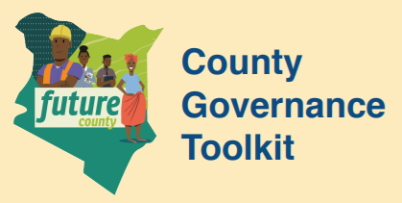| Citizens | Civil Society Organizations (CSOs) | Private Sector |
The Constitution of Kenya (2010) gives citizens the right to self-determination. This means that citizens have both the right and the obligation to participate in decisions that affect their lives. Citizens exercise this right by participating in national and county government decision making processes and getting involved in actions that affect their lives. This includes electing their County Governor, Deputy Governor, ward representative and Senator every five years, as well as the President of the republic and Members of Parliament and other appointed officers, and holding them accountable for their decisions and actions.
The Bill of Rights (Chapter Four of the Constitution) gives citizens the right to access to information to enable them exercise and protect their civic duties and other rights; as well as the right to health services, clean and safe water, adequate food, adequate and affordable housing, education and social security, among others. Citizens also have obligations including payment of taxes and other civic responsibilities like uploading the national values and principals.
The roles of citizens and mechanisms for their participation are defined in law. Both the national and county governments are required to facilitate meaningful engagement for all citizens without discrimination so that they participate in decisions and actions affecting their lives.
This Toolkit has an entire section describing how citizens can engage and participate in county governance. To learn more go to Public Participation
Citizens often come together to form groups within the community broadly referred to as Civil Society Organisations (CSOs) to facilitate and strengthen engagement and collective action on common interests and concerns.
CSOs are voluntary organisations with the governance and direction led by citizens or constituency members, without significant government-controlled participation or representation. They play important intermediary roles in public sector governance processes. Through CSOs, citizens’ voices are amplified and engagement in county governance processes can be enhanced. CSOs offer a more effective means to participate, influence, take action and work with county government on governance processes and service delivery to address common interests.
Learn more: Civil Society Organisations
The private sector is an important actor and stakeholder in Kenya’s governance framework as key participants in the economic development of the country. The private sector includes individuals, privately-owned business entities engaged in for-profit enterprise as well as their representative groups or business membership organisations and umbrella associations such as Kenya Private Sector Alliance (KEPSA), Kenya Association of Manufacturers (KAM) and the Kenya National Chamber of Commerce and Industry (KNCCI). As the major source of jobs and tax revenue, the private sector’s plays an integral role in Kenya’s economy and overall development. Through representative bodies and associations, the private sector participates and engages with the public sector in decision making processes which influence economic governance.
The private sector also plays an important role in partnering with the public sector i.e. the national and county government bringing investment capital, human resources, innovation, and effective management to complement and extend the public sectors service delivery capacity.
The role of the private sector is recognised in County Governments Act 2012 (Part VIII, Section 87) which states that citizen participation in counties should be based on the principle of “(f) promotion of public-private partnerships, such as joint committees, technical teams, and citizen commissions, to encourage direct dialogue and concerted action on sustainable development”, and there are several enabling laws and policies which facilitate the private sector playing its role in Kenya’s devolved democratic governance and service delivery processes.
Resources:
Kenya Private Sector Alliance (KEPSA)
